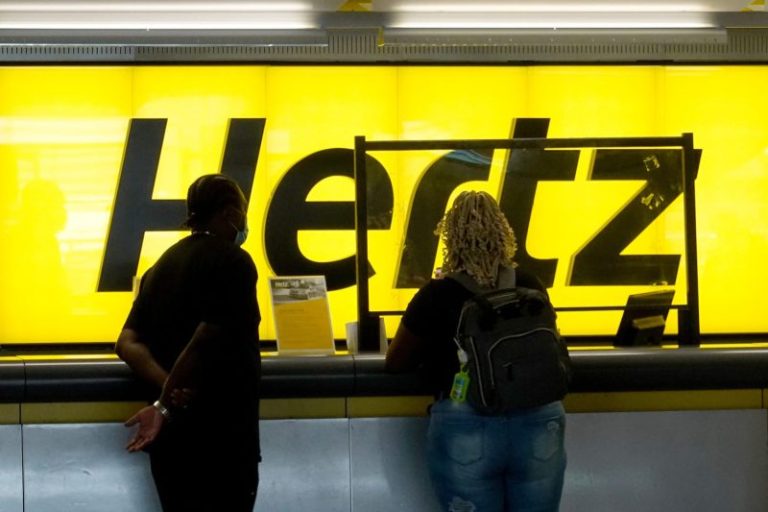One of Russia’s most outspoken generals, sacked and detained after a withering attack on the Defense Ministry two years ago, is returning to the front, according to his lawyer.
But according to Russian state media, he’s been handed a poisoned chalice: front-line command of a notorious battalion of ex-prisoners that has suffered massive casualties in Ukraine.
Two years ago, Major General Ivan Popov was the decorated commander of the 58th Combined Arms Army in southern Ukraine, receiving plaudits for his leadership.
Then he made a mistake – sending a voice note to colleagues excoriating the leadership of the Defense Ministry, and saying he’d been fired for complaining.
“The armed forces of Ukraine could not break through our army from the front, (but) our senior commander hit us from the rear, treacherously and vilely decapitating the army at the most difficult and tense moment,” Popov said in the message, sent in July 2023.
Most of his ire was reserved for the Russian military’s chief-of-staff, Valery Gerasimov.
Popov said that when he complained about a lack of artillery support and other issues, “the senior commanders felt the danger in me and swiftly, in one day, concocted an order for the Minister of Defense, removed me from the order, and got rid of me.”
Kateryna Stepanenko, at the Washington-based Institute for the Study of War, says that Popov’s dismissal “outraged Russian ultranationalists, officers, and veterans, who accused the Russian MoD of removing Popov to mask problems in the Russian military.”
The military establishment was especially sensitive to criticism at the time – less than a month after the abortive revolt by Wagner mercenary group boss Yevgeny Prigozhin.
Life for Popov was soon to get worse. At first, he was sent to Syria to be deputy commander of the Russian contingent there, but in May last year he was arrested for alleged fraud, a charge he has consistently denied.
Prosecutors sought a six-year jail sentence if convicted, and Popov was dismissed from the armed forces. But his supporters continued to speak up for him.
Stepanenko believes the Kremlin “largely failed to convince the Russian ultranationalists, officers, and veterans of Popov’s alleged involvement in the embezzlement case, resulting in persistent backlash online.”
Popov wrote an open letter to Russian President Vladimir Putin, which was published in state media in late March, appealing to be allowed to return to the battlefield. He described Putin as his “moral guide and role model” whose example “made me finally understand what the legendary words mean: ‘a cool head, a warm heart and clean hands.’”
Popov’s wish has now been granted, after a fashion.
Last week, Russian state media reported that his lawyer and the Ministry of Defense had agreed to Popov’s request to return to active duty rather than face the prospect of a prison sentence.
Popov’s lawyer, Sergei Buinovsky, was quoted on TASS as saying: “We, together with the Ministry of Defense, have a motion to suspend on the case… with the positive decision to send Ivan Ivanovich to the SVO (The Special Military Operation.)” Moscow continues to use this term to refer to the full-scale invasion of Ukraine it launched in 2022.
It’s yet to be confirmed that the military court has agreed to the deal, but Popov’s supporters among Russian military bloggers rejoiced.
“The legendary combat general returned to the front!” wrote Vladimir Rogov, a popular blogger.
But there was a sting in the tail. Popov would not be returning to his beloved 58th Army.
On Thursday, Russian business daily newspaper Kommersant reported that Popov would “be sent to the SVO not as a regular stormtrooper, but as the commander of one of the Storm Z units,” citing a source in the security forces.
That same day, Kremlin spokesman Dmitry Peskov declined to comment on a call with journalists “on the intention of General Popov, accused of embezzlement, to take up a special operation.”
But Stepanenko describes Popov’s assignment as “effectively a death sentence because the Russian military command primarily uses ‘Storm Z’ penal detachments in suicidal frontal assaults.”
The Kremlin has continued to support the use of prisoners in combat. Putin recently promised to get members of Storm Z veteran status.
“We will definitely fix this. I don’t see any problems here,” Putin said at a meeting last month. “I have great connections, I will come to an agreement with both the government and the deputies,” he added.
As the Russian military seeks to bolster the number of experienced officers in Ukraine, it’s increasingly turning to those who have fallen out of favor.
“Putin appears to have set up a new redemption system in which disgraced officials and commanders have a chance at regaining Putin’s favor, provided they publicly plead guilty to their charges and then volunteer to fight in Ukraine,” says Stepanenko.
Popov has denied the charges against him and a military court is yet to green-light the deal between his lawyer and the Defense Ministry.
But he is certainly familiar with Russia’s notorious units of ex-convicts, which played an outsize role in the assault on Bakhmut in 2023, suffering immense casualties in the process.
When in charge of the 58th Army, Popov was affiliated with a battalion of former prisoners known as “Storm Gladiator,” a special assault unit within Storm Z.
It had “hundreds of convicts with prior military experience who received training from former Wagner Group and Chechen ‘Akhmat’ forces,” says Stepanenko. But it suffered significant losses in what became known as “meat grinder assaults,” frontal infantry assaults on well-defended positions. Detachments of Storm Gladiator had a survival rate of 40%, according to some investigations.
As and when he returns to the battlefield, Popov is likely to need all his military prowess to keep his ex-prisoners’ battalion, and himself, alive.
This post appeared first on cnn.com










